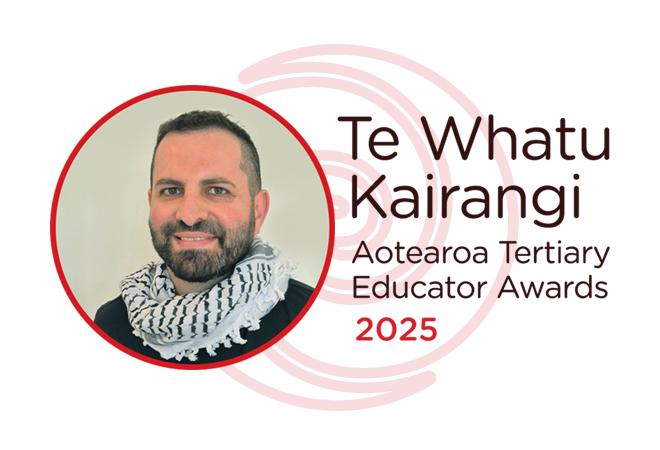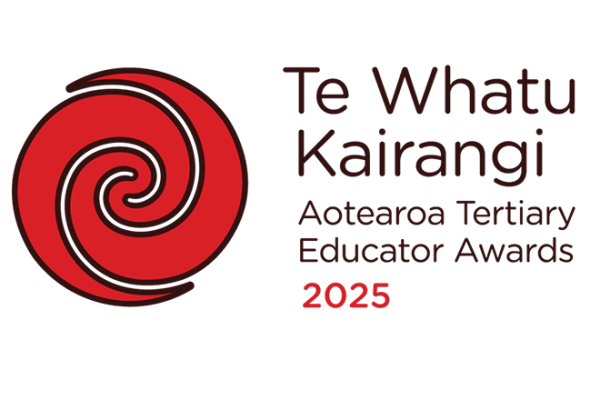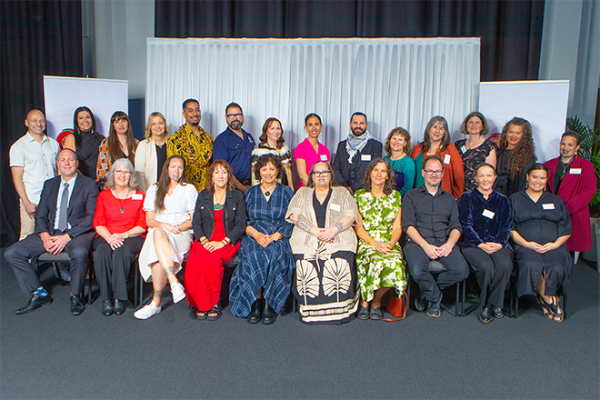Dr Nasser Giacaman
Creating powerful learning experiences
General award winner: Innovation in learning, teaching, and curriculum
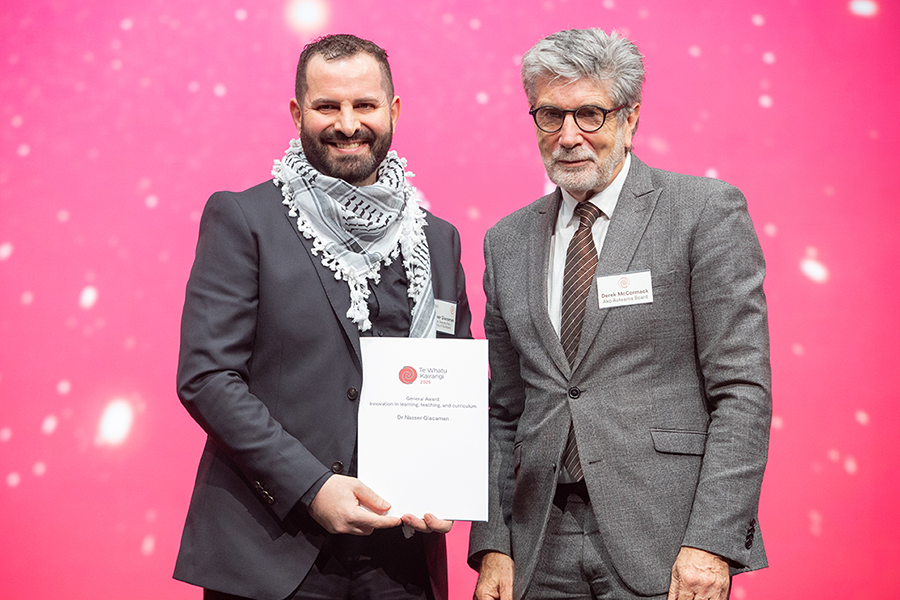
Senior Lecturer, Department of Electrical, Computer, and Software Engineering, Waipapa Taumata Rau | University of Auckland
“Students don’t care how much you know until they know how much you care.”
Nasser Giacaman says software engineering is the discipline behind the apps, websites, and digital systems we use daily, from banking platforms to social media and streaming services. Unlike basic programming, software engineering requires engineers to think systematically about building robust, large-scale systems with meaningful impact and critical considerations. This means balancing technical skills with professional judgment, considering not just whether something works, but whether it’s secure, accessible, and ethical. The senior lecturer in Electrical, Computer, and Software Engineering at the University of Auckland says this complexity makes software engineering particularly challenging to teach effectively, as traditional lecture-based approaches - particularly in large classes of more than 300 students - don’t scale to provide the individual guidance and real-world context that professional engineering education demands. Nasser’s approach is simple. He demonstrates infectious love for both the technical craft and professional practice, inspiring students through visible enthusiasm.
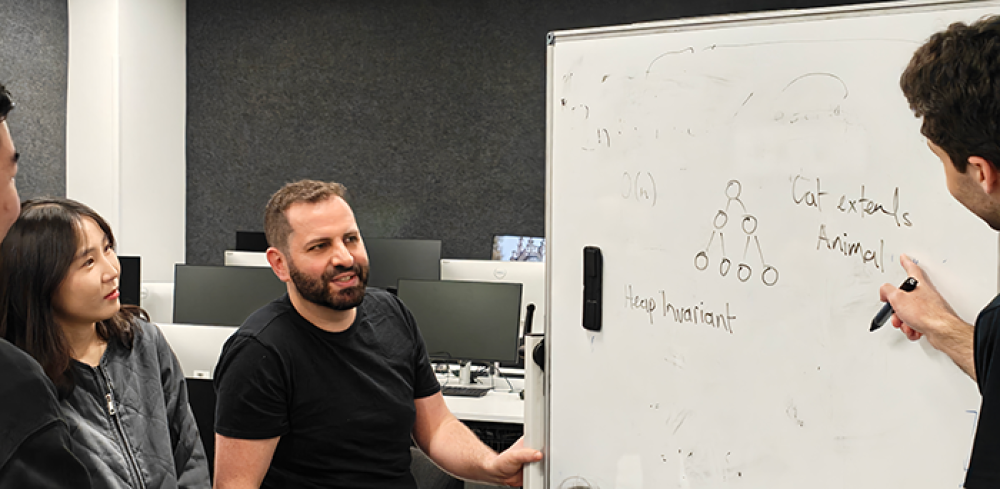
While enthusiasm engages, Nasser believes genuine care, which isn’t just about academic success but also about holistic wellbeing, sustains learning. He aims to understand students before expecting them to understand him. His mission is to push students to achieve results they are proud of while reminding them to take care of themselves, creating a lasting impact on their personal journey. Students’ inevitable struggles, such as feeling overwhelmed or comparing themselves unfavourably to experienced peers, become opportunities for genuine human connection and support. He greets his students with “Hi developers” rather than “Hi students” as he regards them as emerging software developers and engineers with professional careers ahead, rather than just academic learners. This establishes expectations and builds confidence from the start.
Although enthusiasm and care are foundational for learning, Nasser says these values alone are insufficient for large-scale challenges, and he needed to build solutions that embody these principles at scale. These multiple educational innovations have made abstract programming concepts tangible, while developing authentic professional engineering mindsets. For example, he led the design of Co-Thinker, an educational tool developed collaboratively with his students, featuring two assessment types: a “Reflection Mentor” where students are encouraged to articulate their learning experience, and an “AI Student” that the human student teaches, thus leveraging research that shows teaching others reinforces one’s own understanding. Co-Thinker’s verbal communication function supports diverse learners, including auditory learners and those with dyslexia or English as a second language. During its initial development phase alone, the Co-Thinker platform was used across six courses with over 1000 students, demonstrating immediate scalability and effectiveness. It also won a Faculty of Engineering Teaching Development Award.
Nasser believes that traditional programming education can create a disconnect between concept introduction and practice, where students passively observe programming concepts in lectures, then wait days for separate laboratory sessions to gain hands-on experience. This delay prevents the immediate experimentation and practice essential for programming comprehension. This led him to develop Active Classroom Programmer (ACP), which eliminates this disconnect by turning large-scale lectures into interactive coding environments. Students have the ability to code alongside Nasser on their devices, generating authentic learning moments where questions arise naturally from hands-on experience rather than from theoretical confusion. Since 2013, over 5000 users have engaged with ACP across more than 50 course offerings, including international implementations, delivering over 700 programming exercises to tertiary students. The tool’s consistent use across multiple years and institutions demonstrates its effectiveness in addressing fundamental challenges in large-scale programming education at the tertiary level.
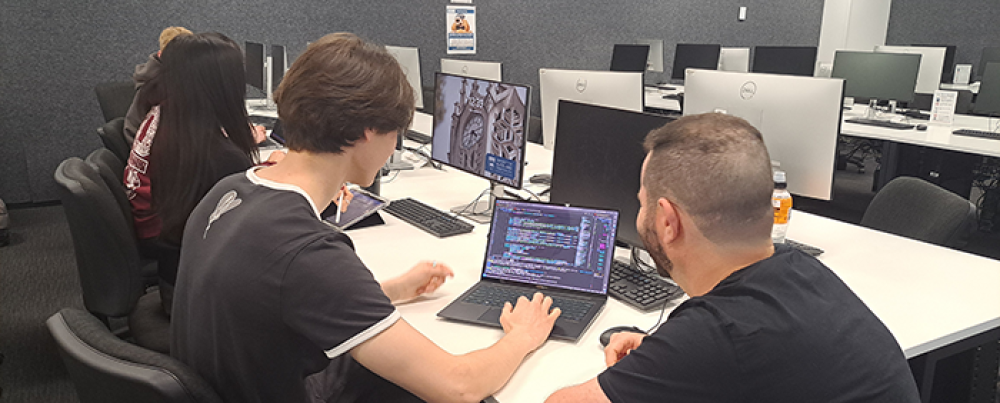
Nasser’s contribution to the redevelopment of a large core course included the development of a custom interactive website with embedded “Get your hands dirty!” programming exercises. In collaboration with colleagues, he created a platform where students could edit, execute, and save code directly alongside learning material, maximising engagement and active learning. This website is a one-stop shop featuring Topics (interactive content replacing traditional slides), comprehensive Resources (instructional guides), Assessment handouts, plus engaging features like lecture countdowns and calendars. Following its success, it has been extended to other courses.
Another of Nasser’s innovations was helping to develop the GradeStyle tool to shift assessment from delayed summative feedback to continuous formative learning. Rather than waiting weeks for one-off grading, students receive immediate, detailed feedback throughout their development process. The impact is substantial—what previously took more than 50 hours now completes in minutes and provides more consistent and comprehensive feedback than manual assessment. GradeStyle’s innovation extends beyond the University of Auckland, making both research findings and practical tools freely available to the international computing education community.
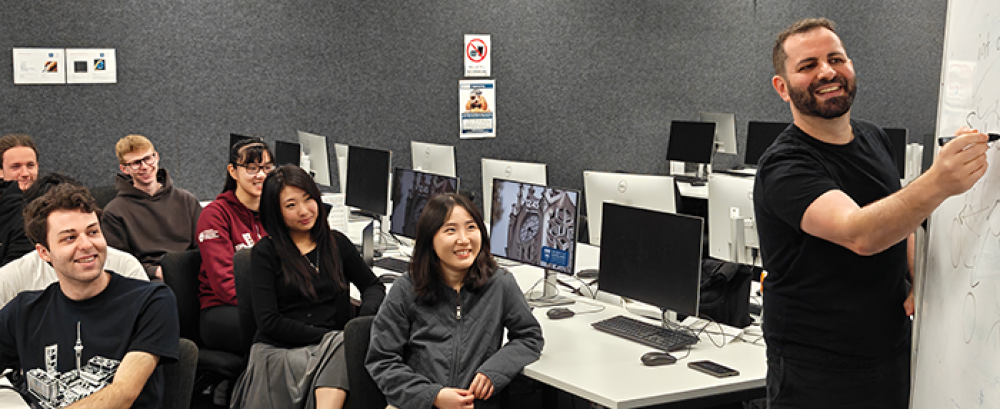
As software engineering demands professional skills beyond coding, such as client communication, ethical decision-making and collaborative problem-solving, Nasser worked closely with colleagues in developing an approach that transforms instructors into fictional clients while positioning students as professional developers. Elaborate client personas with backstories and professional needs are created. This embeds professional development directly within technical courses. Students complete semester-long projects with evolving requirements and realistic constraints, practising requirements gathering and client communication.
As one of 13 international authors on the 2020 Working Group report High Performance Computing Education: Current Challenges and Future Directions, Nasser contributed to addressing challenges in teaching such difficult concepts. Most recently, his collaborative project for teaching AI development has been published by ACM EngageCSEdu. This comprehensive resource provides educators with starter code, handouts and teaching guidance. Such innovations have created impact beyond the University of Auckland’s courses, through systematic dissemination of research-validated tools that address fundamental challenges in computing education worldwide.
“Software engineering demands professional skills beyond coding: client communication, ethical decision-making, and collaborative problem-solving.”
